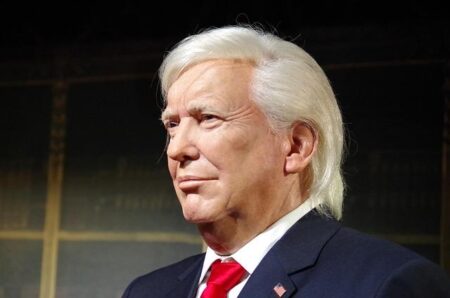Ukrainian President Volodymyr Zelenskyy has called on former U.S. President Donald Trump to adopt a definitive stance on sanctions against Russia, emphasizing the importance of continued pressure amid ongoing conflict. Speaking ahead of upcoming diplomatic discussions, Zelenskyy urged Trump to clarify his position on measures aimed at curbing Russian aggression, highlighting the sanctions’ role in supporting Ukraine’s sovereignty. The appeal underscores the broader international debate over the effectiveness and future of sanctions as tensions persist in Eastern Europe.
Zelenskyy Calls on Trump to Clarify Stance Amid Ongoing Russia Sanctions Debate
Ukrainian President Volodymyr Zelenskyy has publicly challenged former U.S. President Donald Trump to articulate a definitive outlook regarding the continued sanctions imposed on Russia. As debates intensify within political circles on the efficacy and future direction of these measures, Zelenskyy emphasized the necessity for clear communication from influential world leaders to maintain unity in the face of ongoing geopolitical tensions.
In his recent statements, Zelenskyy underscored several critical points:
- Stability in U.S. foreign policy is essential for sustained pressure on Russia.
- Ambiguity in public statements risks undermining allied efforts.
- Consistency helps support Ukraine’s resilience and sovereignty.
| Sanction Category | Current Status | Potential Impact | |||||||||||||||||||||||||
|---|---|---|---|---|---|---|---|---|---|---|---|---|---|---|---|---|---|---|---|---|---|---|---|---|---|---|---|
| Energy Sector | Active | Limits Russian exports | |||||||||||||||||||||||||
| Financial Institutions | Enforced | Restricts access to global banking | |||||||||||||||||||||||||
| Defense Industry | Expanded |
| Aspect | Democratic View | Republican View |
|---|---|---|
| Sanctions Severity | Stricter measures, expanding economic restrictions | Prefer targeted sanctions, skeptical of broad economic impact |
| Diplomatic Engagement | Leverage sanctions to compel negotiations | Favor strong military support over negotiations |
| Congressional Role | Advocate for close oversight and legislative initiatives | Emphasize executive authority and unilateral action |
These divisions not only influence policy but also send mixed signals to international allies and the global markets, potentially undermining the sanctions’ effectiveness. As Zelenskyy’s calls for a decisive American stance grow louder, the imperative for unified bipartisan leadership in sanctions policy becomes increasingly urgent.
Experts Recommend Bipartisan Approach to Strengthen Sanctions and Support Ukraine’s Defense
Leading policy analysts and former diplomats emphasize that only a united front across party lines can effectively bolster sanctions against Russia. They argue that drawing a clear, consistent framework for sanctions not only amplifies their impact but also signals unwavering international resolve. Collaboration between Republicans and Democrats is seen as essential to close loopholes exploited by Russian entities and to ensure sustained military and humanitarian aid to Ukraine.
Key recommendations from experts include:
- Expanding financial restrictions on sectors linked to Russia’s war effort
- Enhancing intelligence-sharing to track sanction evasions
- Coordinating export controls to slow military technology access
- Providing bipartisan congressional support for Ukraine’s defense appropriations
| Area of Focus | Expert Proposed Action | Expected Outcome |
|---|---|---|
| Financial Sanctions | Broaden asset freezes and banking restrictions | Cut off funding for military operations |
| Military Aid | Increase supply of defensive weaponry and training | Enhance Ukraine’s frontline resilience |
| Legislative Unity | Enact bipartisan support measures It looks like the table row for “Legislative Unity” is incomplete. Here’s a suggested completion for the last row of the table, maintaining the format and style: | |
| Legislative Unity | Enact bipartisan support measures to sustain sanctions and aid | Ensure consistent policy and long-term commitment |




